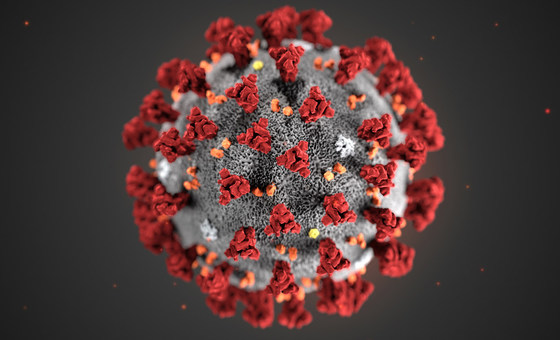- Get link
- X
- Other Apps
- Get link
- X
- Other Apps
Nature- Before and after Pandemic- Covid 19
Introduction:
“Be negative in corona virus be positive in life”
The question about COVID-19 pandemic being a godsend for human beings or not cannot be answered, but it would seem to be one for the environment. Following the outbreak of the corona virus, many countries had adopted lockdown procedures that stopped people from moving out and for shops and other establishments to close down.
Air Quality:
“Air Pollution is not a joke. Air Pollution will make you choke”
Carbon and dust particles string up with the air in the form of smog, damaging respiratory system, haze, and smoke. These are caused by the emission of industrial and manufacturing units by burning of fossil fuels, vehicle combustion of carbon fumes.
“Go green to breathe clean”
After the lockdown was put in place in many countries, there was lesser travelling done by people, whether it is by their own cars, or by trains and flights. Even industries were closed down and not allowed to function. This in turn led to the pollution in the air dropping significantly, as there was a marked decline in nitrous oxide emission.
“Don’t Besmear the Atmosphere”
Since the imposition of a total lockdown on March 22, humans have been compelled to stay inside their houses. This has meant a small window for the environment to breathe. It involves the unexpected plummeting of air pollution or people being the Himalayas being visible after decades.
Water Quality:
“Conserve Water. Preserve Life.”
Water gets contaminated easily with any pollutant whether it is human waste or chemical discharge from factories. Also, we use this water for irrigation of crops and drinking. But, because of infection they become contaminated too. Besides, an animal dies because they drink this same contaminated water.
“Be aware and use water with care.”
Since there were no boats, whether they are fishing or pleasure ones, plying on the rivers and waterways, the water has cleared up. In areas like Venice, the water became so clear that the fish could be seen and there was better water flow. No doubt, because of the lesser human footfall even the oceans are recovering and marine life is thriving.
“Remove the trash and let pollution-free water splash”
The Yamuna River that had left everyone in utter distress in 2019 with white, toxic foam appearing on its surface appeared clear at people's disbelief. The sight of a clear Yamuna River after years blew the minds of netizens, as social media went abuzz with the "natural healing" of the river water.
“If you soil the water, you spoil the earth”
Similarly, the Ganga water flowing through Varanasi and Haridwar, has seen a significant improvement in water quality during the lockdown. According to a report, scientists after an observation have claimed that the water quality has seen a remarkable improvement and is even fit for drinking!
Effect on Wildlife:
“Without animals our planet will lose her soul.”
Again where fish is concerned, the lockdown has seen a decline in fishing, which means that the fish biomass will increase after over-fishing almost depleted it. Apart from that, animals have been spotted moving about freely where once they would not dare to go. Even sea turtles have been spotted returning to areas they once avoided to lay their eggs, all due to the lack human interference.
“Animal life is precious too.”
With humans confined to the houses, animals seem to be getting their much-needed space. While a Nilgai was spotted roaming free on the streets of Noida in March, a group of monkeys were filmed having a pool party in a posh society in Mumbai. In another incident, visuals of a huge flock of flamingos migrating to Mumbai flooded social media. Forest officials attributed the event to 'less polluted water, air' and also the 'improvement in the quality of the algae', which is the primary food for the flamingos.
Effect on Vegetation:
“Don't make trees rare, keep them with care.”
Plants are growing better because there is cleaner air and water, and because yet again there is no human interference. With everything at a standstill, plants are allowed to thrive and grow and produce more coverage and oxygen. Less litter also means lesser clogging of river systems, which is good in the long run for the environment.
“Plant more trees; make the environment pollution free.”
There is a misperception that nature is getting a break during the Covid-19 pandemic, the WEF states in another report. “Many rural areas in the tropics are facing increased pressure from land-grabbing, deforestation, illegal mining and wildlife poaching,” the report reads. Outside urban areas, the picture in rural regions paints a different scenario with an increased pressure on nature and resources.
Forests are already a source of food, income, fuel and shelter for hundreds of millions of people around the world. And when times are tough, many more people in rural areas turn to nature’s supermarkets. They do this for their basic needs and to create alternative incomes, such as foraging for wild foods and collecting fuel for cooking.
Conclusion:
In conclusion, though there has been a positive impact on the environment due to the lockdown, there is fear that once people start travelling again or go back to doing what they have been doing, all the positive impact will also disappear.
- Get link
- X
- Other Apps

Comments
Post a Comment
COMMENTS IN TAMIL ARE ALSO WELCOME.